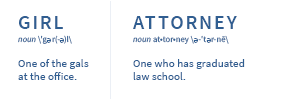From The American Lawyer authored by Christine Simmons:
“The news that former U.S. Supreme Court Justice Sandra Day O’Connor has dementia has brought renewed attention to the potential of age-related cognitive impairment in lawyers. While several in the industry say law firms are still underprepared to address a diagnosis among their lawyers, some recent initiatives can help firms prepare for what observers say is unavoidable as lawyers practice longer.
O’Connor, now 88 years old and the first woman to serve on the U.S. Supreme Court, said Tuesday that “some time ago, doctors diagnosed me with the beginning stages of dementia, probably Alzheimer’s disease.” She said she is no longer able to participate in public life but urged a national commitment to civics education.
Attorney Patrick Krill, a consultant to firms on mental health and impairment issues, said that, to his knowledge, the former justice “is the most high profile member of the legal profession who has come forward and personally shared the diagnosis of Alzheimer’s. I do think it will generate more of a conversation around these issues.”
David Stark, a retired partner Faegre Baker Daniels, said he was hopeful “it will spur people on to create a needs assessment, action plan and well-being policy for their firm.”
O’Connor’s announcement shows there is no shame associated with a dementia diagnosis, said Steven Wall, managing partner of Morgan, Lewis & Bockius. “When leaders of the profession speak about issues they’re confronting,” he said, ‘it raises transparency and raises discussion. Really smart people get to the right place.’”
